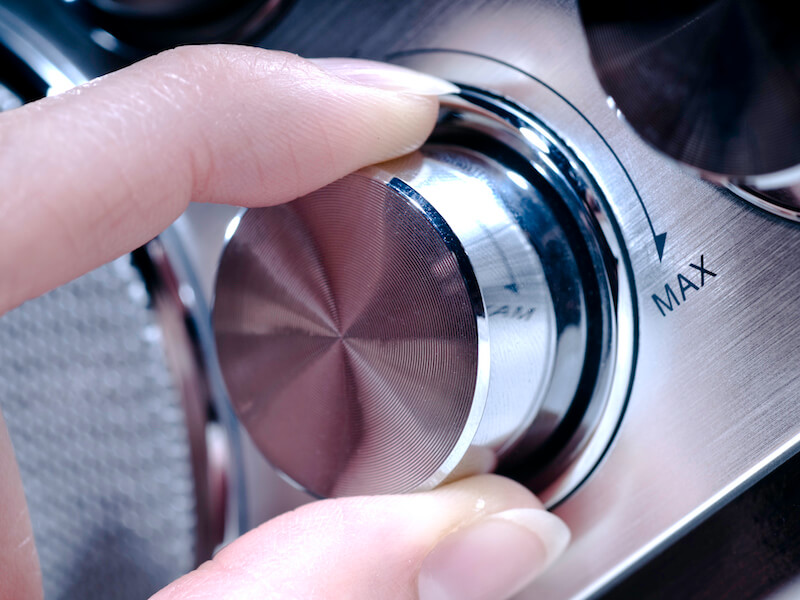Sometimes it’s easy to know when you need medical information. When you break your leg, for example, you know you should go to the doctor (or the emergency room, depending on the situation). You may need a splint or a cast or supportive device, but the point is that you’re unlikely to try “toughing it out.” At least, not for very long (especially if you want your bones to repair themselves properly).
It’s not always that clear cut when it comes to hearing aids, however. Hearing loss is usually a progressive condition. This means it’s not always easy to know when you might need to start wearing hearing aids–or to delay seeking treatment you might know could be helpful.
That’s why it’s a good idea to keep an eye out for some specific signposts that you might be losing your ability to communicate–and that it might be time to talk to your hearing specialist about your first pair of hearing aids.
Hearing loss and hearing aids
Hearing aids are the primary form of treatment for hearing loss. But that doesn’t mean everyone who has hearing loss will immediately need a pair of the devices. In cases where patients have very minor hearing loss, hearing aids won’t always be helpful. As a result, your hearing specialist may want you to wait before starting to use them. Likewise, you may be instructed to wear hearing aids only in certain situations.
In other words, the threshold for needing hearing aids is not always a diagnosis of hearing loss.
Then again, sometimes it is! Because hearing loss can be a sneaky and slow condition, many people don’t receive a diagnosis until there’s been substantial damage. But if you see your hearing specialist regularly, you may be able to catch your hearing loss early–and, as a result, you may not need hearing aids immediately.
And if that’s the case, you’re probably thinking: how can I tell if I need hearing aids?
Signs you need a hearing aid
Hearing loss is one of those conditions that can create immediate communication challenges. The funny thing, though, is that you don’t always realize those communication challenges are due to hearing loss. So, at what point will a hearing aid help?
Here are some of the typical signs you should watch out for:
- You have trouble understanding what people are saying: Many people don’t think they have hearing loss or need hearing aids because the overall volume they perceive seems fine. But hearing loss is funny–it tends to impact certain frequencies before others. Which means that the vast majority of sounds could seem normal but things in the high frequencies (like certain vowels) will be distorted. As a result, you might have a hard time understanding what people are saying to you.
- You can’t understand people on the phone: Even the best phone speakers have a habit of flattening a voice. That can make it hard to understand–especially if you have hearing loss. Again, certain frequencies are cut out and the result is that it’s very hard to hear those voices.
- You have a hard time following conversations in noisy places: When people ask, what are the signs of hearing loss, this one almost always comes up. One of the surest signs of hearing loss is that you have trouble following conversations in noisy places, like bars or restaurants. This occurs because your ears are not receiving as much information as they used to–and your brain isn’t really able to fill in the gaps as easily. As a result, there’s a lot of muffled conversations.
- You listen to the radio or TV at high volumes: If you’re constantly turning the volume up on your television or radio or smartphone, it may be due to hearing loss. This is especially true if you keep moving that volume knob higher (and even more especially true if the people around you complain about how loud your media is).
So what should you do?
When you break your leg, it’s obvious what to do: you go to the doctor! But what about when you notice these signs you might need a hearing aid? What level of hearing loss requires hearing aids? Well, that’s hard to answer–but when you start noticing these signs, it’s a good idea to make an appointment with your hearing specialist. Your hearing specialist will be able to evaluate the health of your hearing–and find out just how severe your hearing loss may or may not be.
A hearing screening will also help you get the best possible hearing aids for your needs–if you do indeed need hearing aids. This means you’ll be able to get back to communicating with your friends and loved ones–you’ll understand your grandkids when they call you on the phone, your co-workers at your morning meeting, and your friends at happy hour.
Schedule an appointment with a qualified provider near you today.



